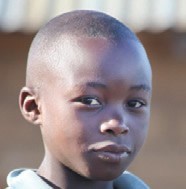Idaaca in Benin

Photo Source:
Anonymous
|
Send Joshua Project a map of this people group.
|
| People Name: | Idaaca |
| Country: | Benin |
| 10/40 Window: | Yes |
| Population: | 207,000 |
| World Population: | 207,000 |
| Primary Language: | Ede Idaca |
| Primary Religion: | Ethnic Religions |
| Christian Adherents: | 7.00 % |
| Evangelicals: | 0.70 % |
| Scripture: | New Testament |
| Ministry Resources: | Yes |
| Jesus Film: | Yes |
| Audio Recordings: | Yes |
| People Cluster: | Yoruba |
| Affinity Bloc: | Sub-Saharan Peoples |
| Progress Level: |
|
Introduction / History
The Idaca of Benin are located in Zou province of the south-central part of the country. Although Benin is home to about 64 distinct peoples, the Idaca represents a small percentage of the population. They are surrounded by tribes with similar lifestyles that usually came from the Mande groups. The Idaca speak a language called Ede Idaca, which belongs to the Niger-Congo language family.
What Are Their Lives Like?
We know very little about the Idaca people, but they are probably subsistence farmers like the other tribes in Benin. They grow millet, sorghum and fonio (sorghum-like grain) as staple crops. Depending on weather conditions they can also grow melons, onions, bananas, cucumbers, eggplant, rice, taro, yams, tobacco and tomatoes. Farming methods are very basic, with the hoe being the primary tool for cultivation. Crops are rotated, and fields are sometimes left fallow.
Hunting, fishing and gathering (especially of shea nuts) provide only a modest supplement to the diet. Far more important is raising livestock. The Idaca people keep cattle for sacrifices, marriage payments, and for hides and manure but rarely for milk. Their domestic animals include sheep, goats, dogs and chickens.
Trade seems to be highly developed, and regular markets are widespread among the tribes in Benin. Women do most of the market trading as well as the gathering. Men hunt but both sexes fish. The men also tend the livestock, clear the land and perform the bulk of the agricultural work. The women, however, help in the fields whenever needed.
Most of the Idaca live in neighborhoods of scattered family homesteads, with a few compact villages in different areas. Most of the tribes of the region live in round or rectangular mud or sun-dried brick huts with thatch roofs.
Few of the tribes in the region impose restrictions on premarital sexual relations. Marriages are usually arranged by the heads of two extended families, often while the girl is still an infant. While the various Somba sub-groups do not require a bride price, they demand premarital bride service. Polygyny (having more than one wife) is common. Usually, the first wife enjoys a superior status and the other wives have separate quarters. The husband divides his time equally among all his wives.
What Are Their Beliefs?
Although some of the Idaca in Benin have accepted Christianity, most still follow traditional ethnic religion. They believe that there are many gods and that the stars contain supernatural forces. They have an extensive system of cults in which mystical power is explained and controlled. The Idaca also believe that every person has an "inner force" that determines his destiny. After death, this "soul" either goes to the sky with the other mystical powers or is reincarnated. They believe the dead influence the living; therefore they make sacrifices to their ancestral spirits.
What Are Their Needs?
Although some progress has been made among the Idaca, many have yet to hear a clear presentation of the gospel message. They need faithful servants who will disciple them.
Prayer Points
Ask the Lord of the harvest to call full-time missionaries to minister to the Idaca of Benin.
Ask the Lord for a record high harvest so they can see the power and goodness of God in a practical way.
Pray that God will give Idaca Christian believers many opportunities to disciple others.